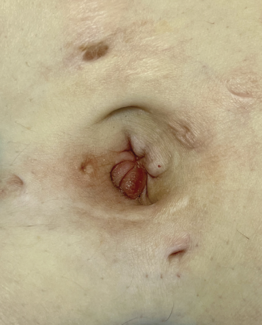Early Use of Biologics in Psoriasis May Alter Inflammatory Course, Improve Comorbidities
A narrative review, published in the British Journal of Dermatology, highlights the evolving understanding of psoriasis as a systemic inflammatory disease and emphasizes the potential of biologic therapies not only to control skin manifestations but also to modify the broader inflammatory burden that contributes to common comorbidities.
Psoriasis, traditionally managed as a dermatologic condition, is increasingly recognized for its complex, systemic, immune-mediated pathology. Characterized by erythematous, scaly, and pruritic plaques, the disease is now firmly linked to a heightened risk for serious comorbidities, including psoriatic arthritis, cardiovascular disease, diabetes mellitus, inflammatory bowel disease, and nonalcoholic fatty liver disease.
The review examined published data on the ability of biologic therapies to reduce systemic inflammation in patients with moderate-to-severe plaque psoriasis. Authors propose a treatment model that moves beyond skin clearance alone and toward early intervention aimed at preventing long-term systemic damage.
“Preventing damage associated with inflammation, and preventing development of future inflammatory damage and comorbidities, may be a potentially achievable treatment goal for many patients with moderate-to-severe plaque psoriasis when biological therapies are utilized early in the disease,” the study notes.
This marks a shift from reactive management to a proactive strategy centered on long-term health preservation. The findings suggest that biologics, by targeting key inflammatory cytokines, may play a role not only in halting disease progression but also in potentially reversing existing damage.
The review further suggests that this approach could influence how clinicians evaluate treatment goals, urging dermatologists to consider systemic outcomes alongside traditional skin clearance metrics.
“Encouraging data from recent studies suggest that the loftier goal of reversing existing inflammatory damage and improving signs and symptoms of inflammatory comorbidities could also possibly be attainable,” the authors write.
While these conclusions are drawn from a synthesis of current evidence, the review underscores the importance of future prospective studies. Ongoing trials examining the effects of biologics on systemic inflammatory markers are expected to provide further clarity and guide practice.
The review does not offer new experimental data but synthesizes current literature to advocate for a broader, inflammation-targeted treatment paradigm. This includes consideration of biologic therapy earlier in the disease course, particularly for patients at high risk for comorbidity.
For practicing dermatologists, the key takeaway is clear: early biologic intervention may offer more than symptomatic relief. By actively mitigating systemic inflammation, these therapies may help reduce the long-term health burden associated with psoriasis, offering a more holistic approach to disease management.
As the understanding of psoriasis pathophysiology continues to evolve, treatment goals may need to expand accordingly, placing greater emphasis on systemic health and prevention of irreversible inflammatory damage. This review reinforces the need for individualized care strategies that address the full spectrum of disease impact.
Reference
Korman NJ. Management of psoriasis as a systemic disease: what is the evidence? Br J Dermatol. 2020;182(4):840-848. doi:10.1111/bjd.18245
























